What is a smart electric vehicle charger? Can I install one at home?
Since the continued popularity of electric vehicles has led to the development of charging technology innovations by charging post manufacturers, smart EV chargers have emerged as key energy-saving travel tools. Among all of their benefits and features, smart EV chargers stand out as unique offerings; this article explores why installing one at home might be worthwhile.
What is a Smart EV Charger?
As a smart and efficient EV charging solution, Smart EV Charger offers linking and monitoring functions for EV charging while being equipped with communication and data processing functions. In its program of operation, this charger connects between car and software which optimizes management while sending charging data for optimization to an external platform or platform such as ours for optimization and management purposes – offering superior functionality, efficiency, and convenience than non-smart chargers. Below are four benefits associated with smart EV chargers:
- Convenience: Smart electric vehicle chargers offer many advantages for ease of use. Through smartphone apps or in-vehicle control systems, users can gain remote monitoring and control of the charging process; scheduling charging times remotely as well. Users can check charging status at any time, and start or stop charging whenever needed – providing greater charging flexibility and convenience at home or the workplace.
- Intelligent Charging: Smart electric vehicle chargers feature intelligent charging capabilities. Their intelligent system can schedule charging based on factors like grid load and time-of-use electricity pricing, to avoid peak demand periods for charging. This helps lower users’ costs while simultaneously balancing the grid load for increased energy utilization efficiency.
- Real-time Monitoring and Fault Diagnosis: Smart electric vehicle chargers offer remote monitoring and fault diagnosis capabilities, offering real-time status and charging data to provide peace of mind during the charging process. If any faults do arise they can be promptly reported and addressed as quickly as possible to minimize interruptions due to malfunctions.
- Enhanced Efficiency: Smart chargers collect and analyze various charging process data, such as charging time and quantity. This enables users to better understand their charging habits, optimize charging plans, and enhance the energy efficiency of electric vehicles thereby optimizing energy resources more efficiently.
Intelligent EV chargers offer many advantages for both residential and commercial use. Their convenient, intelligent, and reliable charging services offer efficient solutions. Users can select their most appropriate charging mode based on individual needs or performance criteria for increased flexibility of charging as well as personalized selection.
How does a smart electric vehicle charger work?
After getting acquainted with smart EVs and their benefits, you may find yourself asking how their chargers work.
Once a smart EV charger has been connected to an outlet or charging port, it will detect and recognize its source power supply before authenticating each vehicle through communication protocols such as the Combined Charging System (CCS) or Tesla Supercharger. Once communication has been established between the charger and vehicle, authentication takes place to ensure that only authorized EVs may use its services.
During charging, a smart EV charger dynamically adjusts its output power based on factors like battery status, user settings, and grid load to effectively manage grid loads.
Energy generated during charging causes battery temperature to increase. However, too high a temperature could compromise its lifecycle and damage an EV battery. A smart EV charger continuously monitors this temperature to make sure that charging remains within its optimal temperature range and minimizes potential risks during operation.
Once an EV battery reaches a predetermined state of charge, smart EV chargers will stop charging automatically to prevent overcharging and ensure safety and reliability during the charging process. Furthermore, some chargers feature power failure protection mechanisms that help mitigate sudden grid problems or equipment failure from disrupting this process.
Can I install a smart electric vehicle charger at home?
Home electric vehicle charging posts and wall chargers offer an efficient, safe, and convenient method for charging electric vehicles from garages. As technology improves, charging post distributors offer innovative home charging solutions and smart EV chargers are becoming more widely used – be sure to pay attention to these aspects if you want the best smart EV car charger installed in your residence.
- Consider Your Power Capacity: To install a Level 2 smart home electric vehicle charger, a 240-volt outlet is necessary. Before leaping home-electric vehicle charging, make sure that your electrical system can support such charges. It is recommended to have the electrical system assessed and potentially upgraded by the power company or a professional electrician.
- Choosing a suitable EV charger: Select a home electric vehicle charger that matches your model and charging requirements. Different electric vehicle models may have varying power and interface requirements for chargers, so ensure the chosen model is compatible. For those having difficulty deciding, consult with electric vehicle charger companies such as Joint. As a reliable Original Design Manufacturer (ODM) and Electric Vehicle Supply Equipment (EVSE) exporter, Joint produces home and commercial electric vehicle chargers that comply with international standards. The Joint EVC38 Portable Home Electric Vehicle Charger, supporting smart charging controllable through the TUYA app, is a forward-thinking smart electric vehicle charger.
- Determine Installation Location and Install the Charger: Whether for home electric vehicle charging or multi-family electric vehicle charging, chargers are typically installed in garages or parking areas. Ensure the installation location is convenient, suitable for the electric vehicle charging port, and meets the charger’s installation requirements.
conclusion
Before installing an electric vehicle charger in your home, it is wise to consult with a professional electrician or EV charging equipment supplier to ensure an easy, safe installation that complies with regulations and codes. Don’t forget about taking advantage of tax credits through the Electric Vehicle Charger Incentive.

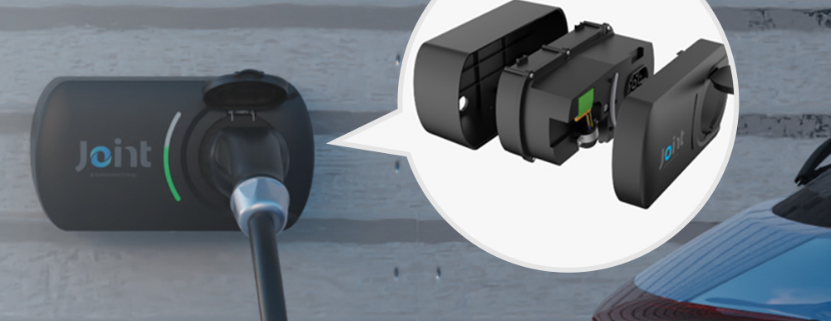
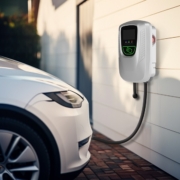
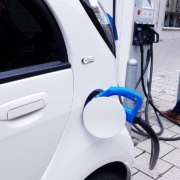
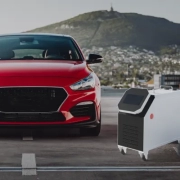
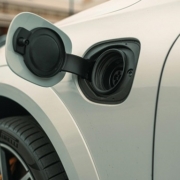


Leave a Reply
Want to join the discussion?Feel free to contribute!